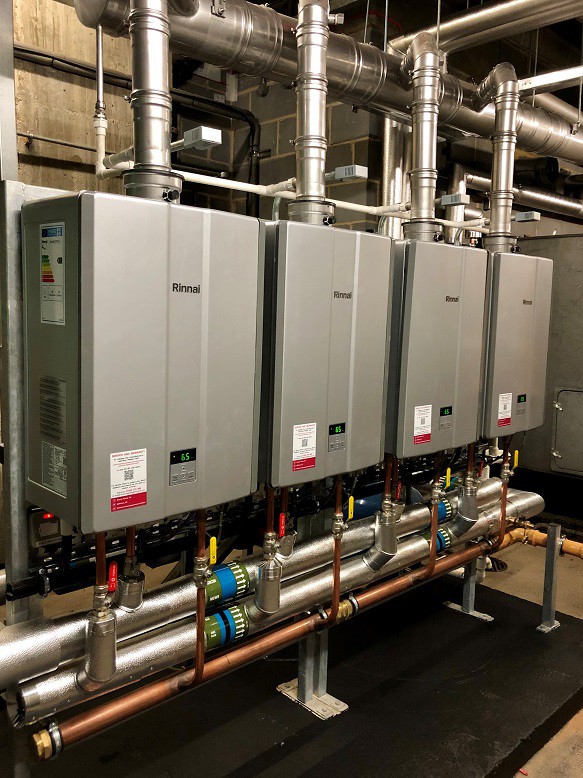
Decarbonise right now with Rinnai N Series and BioLPG
Temperature controlled and limitless volumes of continuous flow hot water heating systems and units now available
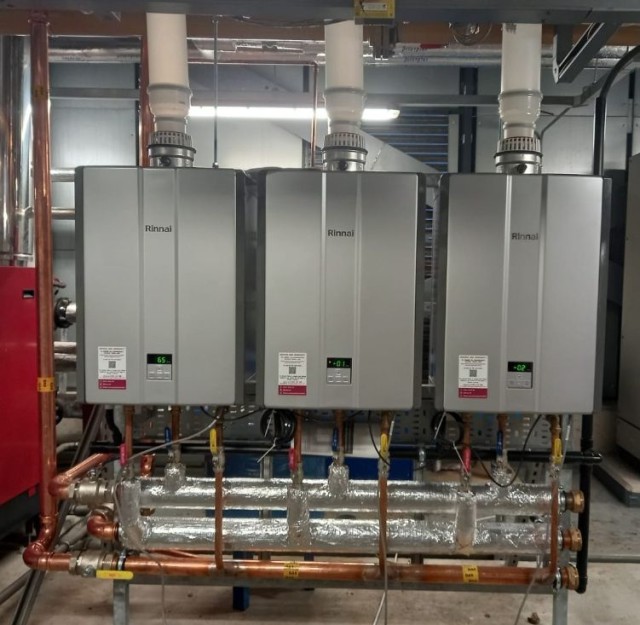
Rinnai offer full product availability for all models
Rinnai offer full product availability for all models 24/7 and next day delivery - including 48-58k units

Two new models have been added to Elco's AEROTOP® range of air source heat pumps - available in outputs from 24kW to 48kW, while the larger AEROTOP® L can deliver outputs from 54kW to 88kW
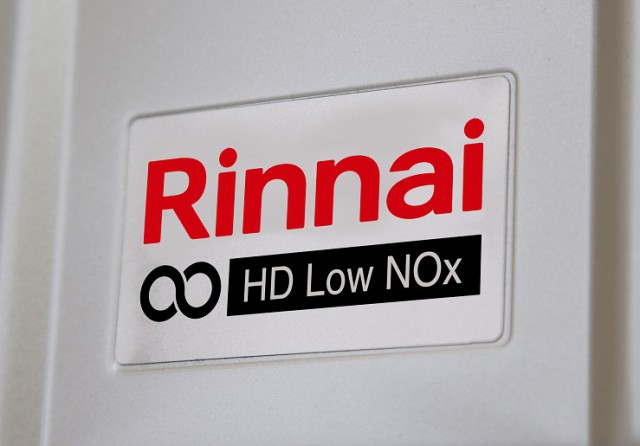
Record numbers attend Rinnai CPD on Hydrogen
Manufacturer of Hydrogen blend ready condensing hot water heating systems Rinnai is reporting ‘record’ levels of attendance for its newest CPD course, ‘Hydrogen and Hydrogen blends as a means of decarbonising the UK Energy network’ with over 300 attending in just one six-week period recently.

Hamworthy’s Upton boiler is now available with improved pipework kits. Hamworthy has made a number of changes including; reducing size and weight, and adding eyelets for easier delivery and handling.

Rinnai's Sensei N Series range is ‘Hydrogen ready’ for the proposed initial supply of hydrogen blends fed through the existing gas infrastructure.
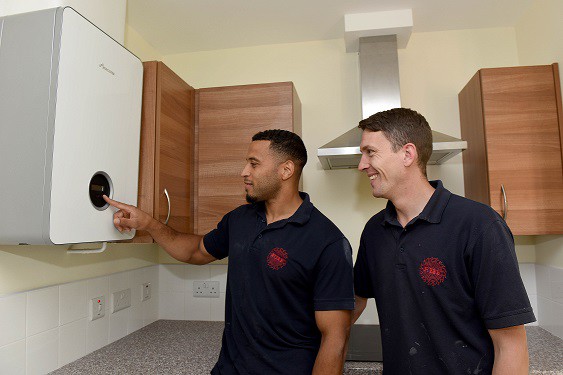
The mix of future heat technologies
Pete Mills, Commercial Technical Operations Manager at Bosch Commercial and Industrial, delves into what heating technology may look like in the future

With the upcoming changes to building regulations as part of the Future Homes Standard, there is no doubt that heat pumps are set to play a significant role in the journey towards decarbonising heat in our homes.

Due to environmental and political pressures, manufacturing and construction companies are starting to replace gas boilers with more efficient products that emit less Co2. The question has to be asked “Will the traditional concept of a white box typically supplied with a first fix rail be replaced by a more practical device to better suit tomorrow’s heating and hot water needs?”

James Smurthwaite of Mitsubishi Electric looks at helping the UK meet its net zero ambitions through eco alternatives in commercial heating
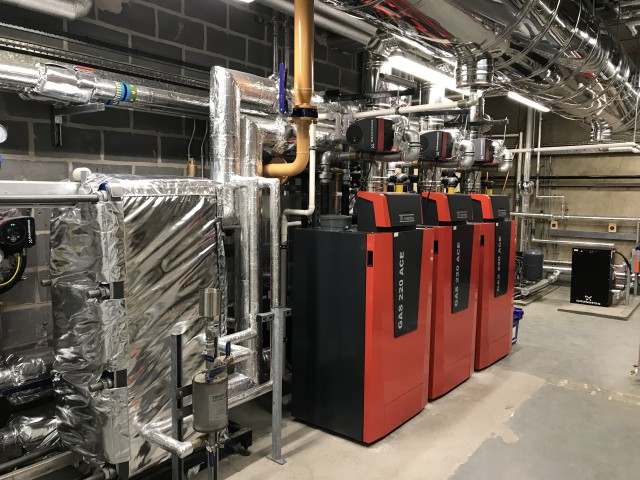
The benefits of prefabrication in a COVID-19 world
Balancing project delays and backlogs with tighter onsite safety requirements? Prefabricated heating solutions could be the answer

As countries throughout Europe work to reach aggressive environmental goals in the next decade, many organisations are looking for new technologies to help them become carbon neutral.
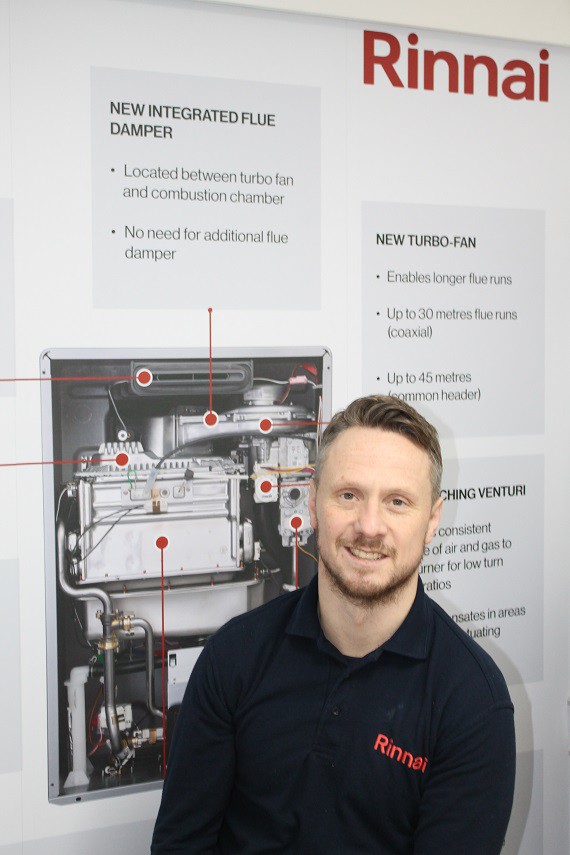
Hydrogen - We can learn from history
Chris Goggin looks front and back to the task of decarbonising the UK’s energy market with reference to converting the domestic housing stock from carbon-based fuels to the leaner, greener Hydrogen blends of gases for the mass market.
Mitsubishi Electric welcomes the latest recommendations from the Climate Change Committee on the need to rapidly scale up heat pump supply chains in its latest report.
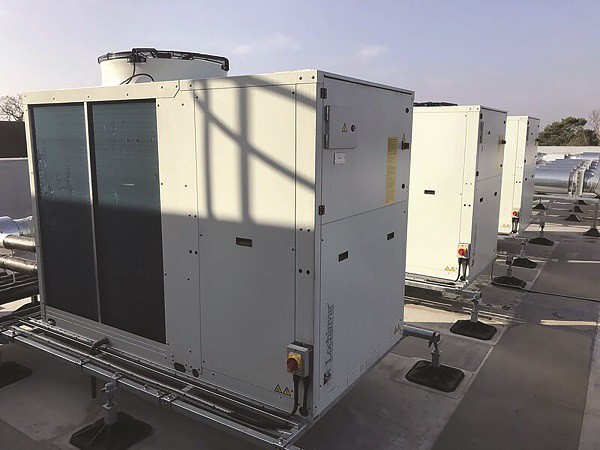
Heat pumps can help to power the recovery
How can the building services industry can play its part in the UK's economic recovery?
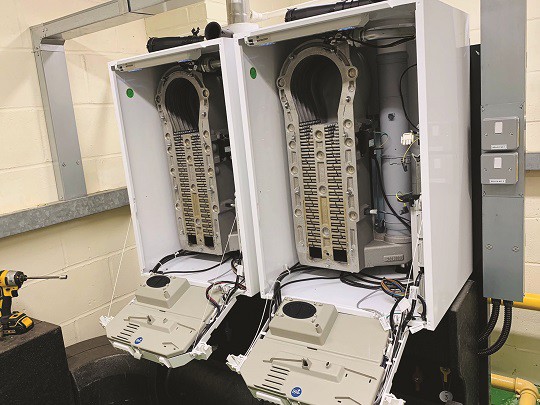
Baxi Heating’s Technical Director Andy Green discusses the importance of implementing a robust winter maintenance programme to protect a building’s heating system and ensure its smooth running
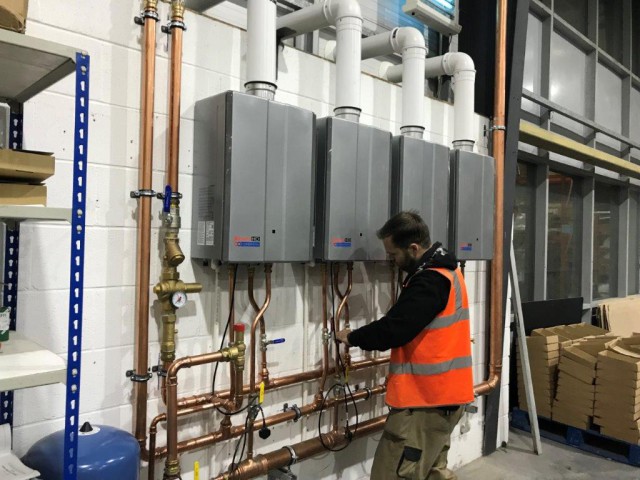
Continuous flow hot water - fuel, energy, installation, environment and finance efficient with major savings possible

HHIC ‘welcomes with caution’ ambitious CCC report
The Heating and Hotwater Industry Council are pleased by the ambition for Heat Pumps and Hydrogen for heat

Government’s heat pumps plan “doomed to failure”
The Government’s plan to increase heat pump installations is “doomed to failure” without a substantial increase in training for installers, according to consumer advice specialists at The Heating Hub

Baxi Heating have promised to revolutionise
Baxi Heating commits to Net Zero Operations by 2030 and to manufacturing products that only use Low Carbon Fuels by 2025

HHIC Expands its platform for future of UK Heat
The Heating and Hotwater Industry Council (HHIC) is ensuring it continues to support its members from across the wider heating industry. Emerging technologies have prompted a reorganisation of the HHIC industry working groups, in order to provide a diverse platform for rigorous discussion on the future of UK heat
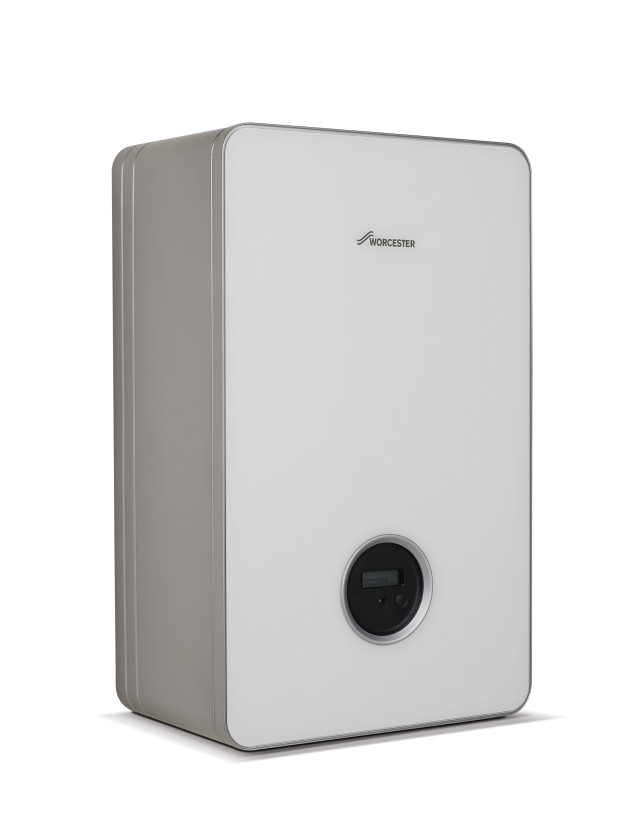
How heat networks will help ensure a net zero future
The ability of heat networks to help decarbonisation of heat has made them a 'go to' solution in new build. Pete Mills of Bosch C&I discusses their importance.
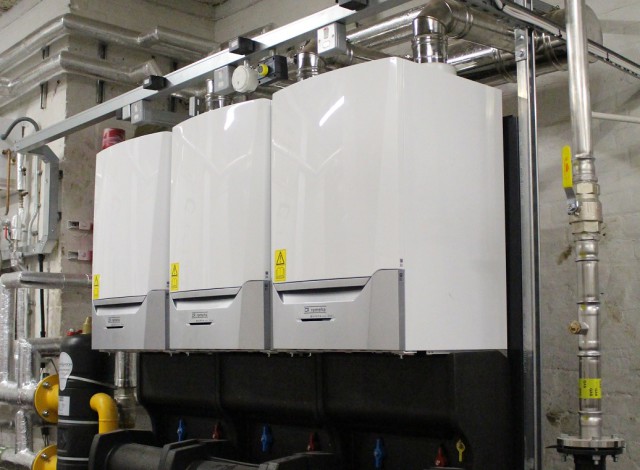
A lesson in maintenance and refurbishment
The focus on air quality and ventilation in school classrooms has been intensified as buildings reopen for the new term. But what impact will this have on the heating system? Andy Green, Technical Director at Baxi Heating, discusses

There is only one way to decarbonise heat and we must realise that now
Electrification is the only realistic way to decarbonise heat at the moment, says Barny Evans of WSP
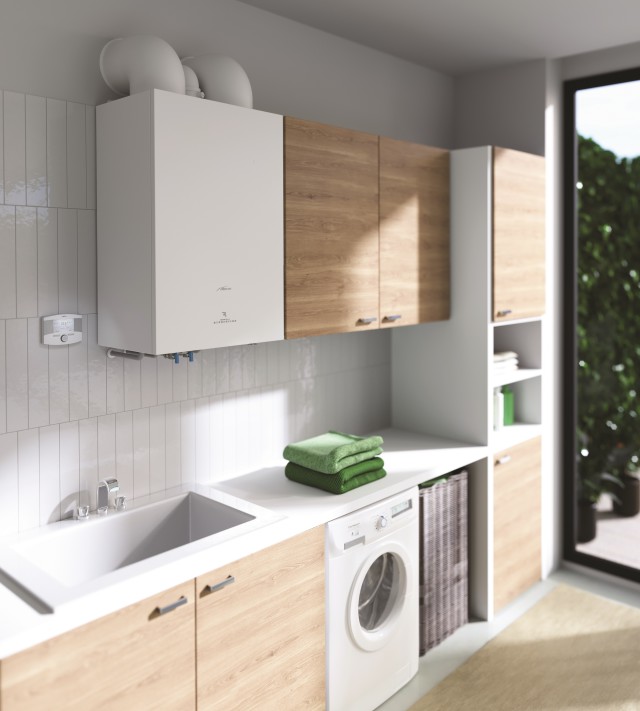
New SIME product receives SAP Recognition
A Yorkshire based boiler manufacturer is pleased to announce that its Murelle Revolution 30 hybrid boiler is now recognised in SAP.

Zehnder Group UK has launched the Zehnder ZFP, a new generation of radiant ceiling panels.
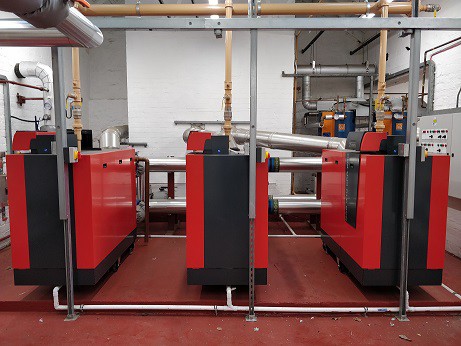
As we work towards full decarbonisation of heat, we mustn’t neglect the current opportunities to improve and optimise the efficiency of the heating and hot water provision in buildings. Baxi Heating’s Dan Martindale explains.
Viessmann enters volume monobloc air source heat pump market
Viessman launches the new new Vitocal 100-A heat pump

Indoor climate solutions specialist Zehnder UK has increased its cooling portfolio with the launch of the ComfoPost range.

Limitless hot water available from Rinnai - now!
Rinnai continuous flow hot water delivery units and systems offer unlimited amounts of hot water for hand washing and hygiene in all applications and sites

Rinnai remote monitoring system gives sites total control of hot water delivery
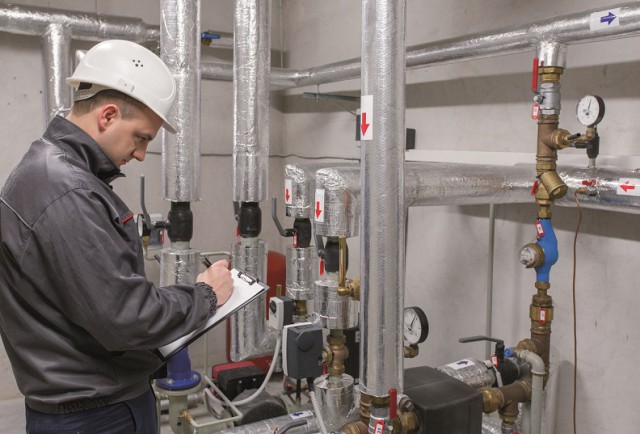
The pressure’s on for legacy heating systems
Resolving issues with legacy heating systems is often not straightforward.

As lockdown eases, heating technicians are returning to their tools but most are concerned about a lack of work.
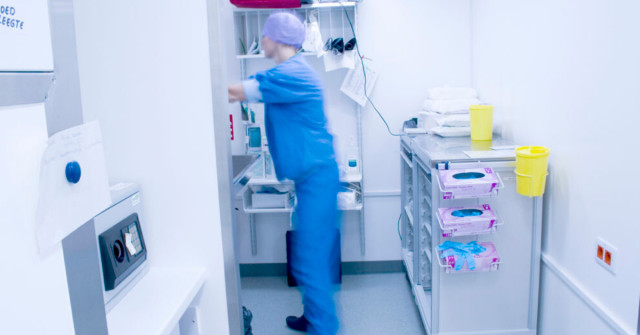
New coatings on surfaces can make the healthcare environment a safer one, says David Simoes

Free hot water delivery energy audit from Rinnai
Rinnai is offering free energy audits on all sites.

In the world of commercial boilers, the traditional rules of engagement are well documented: Manufacture a highly efficient unit that meets the expectations of the market, remove the old product from the range and sing the virtues of the new model’s features. It has been a successful strategy for many years, with incremental improvements delivering major developments over a decade.

With 2018 temperatures dipping to a stark -15oC and peaking at 35.5oC, building owners need to ensure they have sophisticated measures in place to manage the comfort of their employees, especially as there is currently no upper temperature limit for workers.

In the building services world, use of offsite fabrication equipment and techniques is gaining traction as a means of achieving improved quality and on-site safety through greater efficiency.

The government is investing £320 million in district heat networks. For some, this may be a new technology so it can in many cases be misunderstood and this lack of understanding means that some potentially efficient systems are delivering under par performance figures.

For any installer in the heating and ventilation industries, keeping up with the latest trends can be the difference between the business being successful or not. Quite often, these trends are based upon legislative regulations or guidance from government or industry bodies – it might be amends to Part L of the Building Regulations, initiatives such as the Renewable Heat Incentive, or health and safety updates from OFTEC.
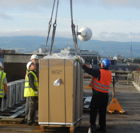
Whether it is a school, hotel, library, gym, small office or even a large domestic property, space is a valuable commodity. Commercial property owners cannot afford to lose the space a bulky heating system or plant room takes up in their building. Owners and operators of these building are looking to get the maximum from the space they have available.

As businesses and organisations look to improve their building’s energy performance and cut costs and emissions, heating is a frequent starting place for efficiency measures.

The UK’s total gas consumption has fallen by 20% since 2000. In some parts of the country, more than 50% of electricity supplies are now being generated by renewables; and last year saw the first day since the industrial revolution when none of our electricity came from coal.

Recycling our rubbish has become second nature in the UK. But we are missing an opportunity to recycle our heat.

Currently supplying about 11% of global space and water heating needs, most heat networks today are fuelled by either coal or natural gas, while the national renewable energy share can range from 1% in China to 42% in Denmark.

The heat network industry is beginning to make a much-needed cultural shift from keeping the heat on at any cost to one that focuses on increasing whole system reliability and efficiency. This is part of a more holistic approach to maintenance and operation.

Communal heating systems and district heat networks are considered by the UK Government as one of the most cost-effective ways of reducing carbon emissions from heating, especially as their efficiency and carbon-saving potential increases as they grow and connect to each other. They also provide a unique opportunity to exploit larger-scale, and often lower-cost, renewable and recovered heat sources that otherwise cannot be used.

Over the course of two years, Danny Bulch, director at Cedar Green Projects, replaced the boilers, gas fired water heaters and calorifiers in the Welcombe hotel, spa and golf club with new equipment. The main challenges of the project were carrying out refurbishment during peak heat requirements in winter; overcoming access issues to the plant room; and accommodating different fuel options.

Renewable technologies are becoming more commonly applied in UK homes, with more householders installing solar panels than ever before. But when it comes to sources of heat, most houses are still fitted with ‘traditional’ boilers, and many homeowners are unaware of the alternatives available. However, 2018 looks to be a turning point, with heat pump applications increasing because of the benefits they offer.

The Victoria Hotel in Sidmouth, part of the Brend Hotel Group, promises its guests that: “From the moment you step through the original carriage portico, you will be surrounded by warmth and refinement.” Where the exquisite décor and four-star service provides the refinement, a new A-rated efficient boiler from Potterton Commercial is now providing the warmth.

Fujitsu General Air Conditioning becomes GENERAL HVAC Solutions UK
Fujitsu General Air Conditioning (UK) has become GENERAL HVAC Solutions UK from 1st January 2026, strengthening its long-term position within the global Paloma Rheem Holdings (PRH) group.
Market performance indicates encouraging signs for future of BEMS sector
Highlighting an increased desire from property developers, architects and designers to decarbonise the UK’s building stock through the specification and implementation of building controls and automation, the building energy management systems (BEMS) market showed steady progress in Q3 – rising 2.6% compared to the previous quarter.






